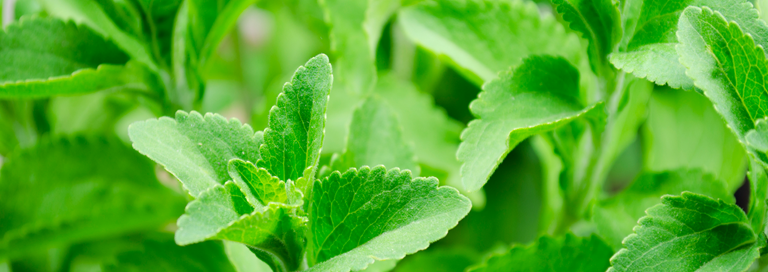My South Florida practice sees a lot of diabetic patients. And I always feel honored that they have chosen to put their health in my care…
But I’m shocked when these patients tell me that their previous doctor or nutritionist recommended that they switch to zero-calorie soft drinks, no-sugar energy bars, and sugar-free yogurts as a “healthy” diabetic alternative.
Please don’t get me wrong…
I’m not suggesting that foods packed with high fructose corn syrup – the main sweetening ingredient used in thousands of products – are any better.
I’ve written to you before about the dangerous effects of corn syrup on your health.
But for health professionals to suggest that non-sugar alternatives – most of which contain the toxic artificial sweetener aspartame – as a smart alternative is simply unforgivable.
Because aspartame, sold under the brand names Nutrasweet and Equal, comes with a list of health concerns as long as my arm.
The latest animal study found that eating aspartame produces epigenetic changes in the brain.1
Your epigenome sits on top of your DNA and directs which genes are expressed.
The researchers discovered that these epigenetic changes altered the expression of genes in the amygdala. That’s the part of the brain that regulates fear.
In other words, the more aspartame you eat, the more anxiety you feel.
Even more disturbing is that these epigenetic changes last for at least two generations! In other words, grandparents could pass these mind-altering traits onto their grandchildren.
I have no doubt that further research will reveal a fuller picture of the mental health problems caused by this toxic chemical.
Over the past decade, multiple studies have linked aspartame to a number of neurotoxic symptoms, including learning problems… headaches… migraines… anxiety… depression… insomnia…and long-term memory loss.2,3,4
This latest study is just the latest in a long
list of health concerns linked to aspartame since it was approved by the FDA.Here are just a few of them:
- Just five months after aspartame was first approved, it was withdrawn from the market over fears that it caused cancer. But it was reinstated in 1981 after intense lobbying by the manufacturer.
- Other studies found that the chemicals in aspartame break down into formaldehyde, a known carcinogen that causes damage to nervous and immune systems, as well as irreversible DNA damage.5
- A 2016 paper published in the journal Physiology & Behavior reported that daily exposure to aspartame resulted in significant weight gain, obesity, cardio-metabolic risk, and mortality.6
Consumers today are told that they must keep their sugar intake as low as possible. Then, they’re presented with sugar-free “healthier alternatives” sweetened with aspartame or high fructose corn syrup.
But both are lab-created Frankenfoods that must be avoided altogether.
However, you don’t have to give up enjoying sweet foods – despite what doctors and dieticians tell you.
Humans evolved to eat sweet foods. It’s how our ancestors knew that food growing in the wild was safe to eat and good for us.
In fact, there are no naturally sweet foods that are harmful to your health. Nature wouldn’t let you evolve to enjoy something that’s bad for you. Foods with natural fat, salt, and sugar are some of the healthiest foods you can eat.
The sugar you need to avoid comes from all the foods and drinks that easily break down into sugar when you eat them.
I’m talking about things like bread, pasta, crackers, and pretzels. Sugar is also hidden in most processed foods like ketchup, salad dressings, and canned soup.
Two sweet alternatives you can try today
You can cut back on damaging sugar by eliminating starchy carbohydrates, grains, and processed junk. And if you like adding sweetness to your food, consider these healthy alternatives to bleached table sugar:
- Try the “Jewel of the Andes.” I first learned of yacón while traveling in the mountains of Peru. Ancient Incas used to eat the roots for endurance. Today we know that this fruit-like vegetable is a healthy and sweet alternative even for diabetics because it doesn’t spike blood glucose.Yacón has an apple-caramel flavor. I like to use it the same way you would honey or maple syrup. It tastes great in tea. But you can also try it as a salad dressing or add it to Greek yogurt. It’s available as a syrup, powder, and flakes.
- Use this healthy sweet herb. I’ve recommended stevia for years because it lowers glucose levels and improves insulin sensitivity. Sadly, like many foods that became mainstream, this once all-natural plant is morphing into an artificial sweetener.The stevia you find in the grocery store is often mixed with chemical fillers like GMO corn Erythritol or even cane sugar. I recommend you buy pure, organic stevia in bulk. It’s available as a fine green powder. It costs a little more, but because it’s up to 350 times sweeter than sugar, you only need a tiny bit.
To Your Good Health,
![]()
Al Sears, MD, CNS
References:
1. Jones SK, et al. “Transgenerational transmission of aspartame-induced anxiety and changes in glutamate-GABA signaling and gene expression in the amygdala.” PNAS. Dec 2022:119(49):e2213120119
2. Choudhary AK, Lee YY. “Neurophysiological symptoms and aspartame: What is the connection?” Nutr Neurosci. 2018 Jun;21(5):306-316.
3. Norwitz NG, Naidoo U. “Nutrition as metabolic treatment for anxiety.” Front Psychiatry. 12 Feb 2021.
4. Lindseth GN, et al. “Neurobehavioral effects of aspartame consumption.” Res Nurs Health. 2014;37:185–193.
5. Trocho C, et al. “Formaldehyde derived from dietary aspartame binds to tissue components in vivo.” Life Sci. 1998;63(5):337-49.
6. Fowler SPG. “Low-calorie sweetener use and energy balance: Results from experimental studies in animals, and large-scale prospective studies in humans.” Physiol Behav. 2016 Oct 1;164(Pt B):517-523.

